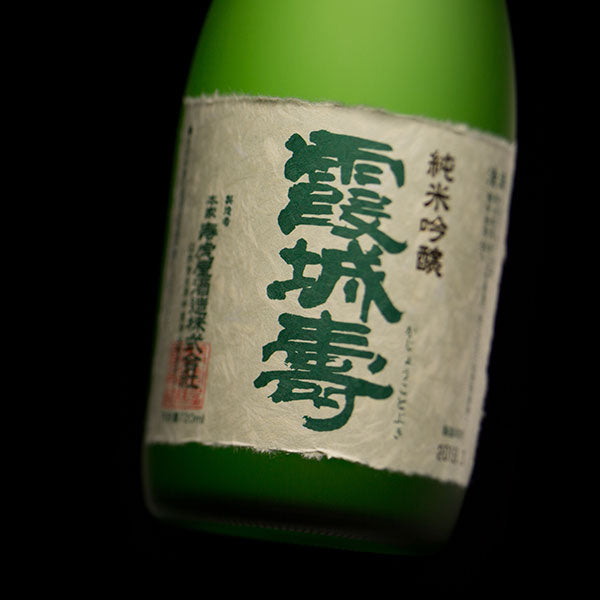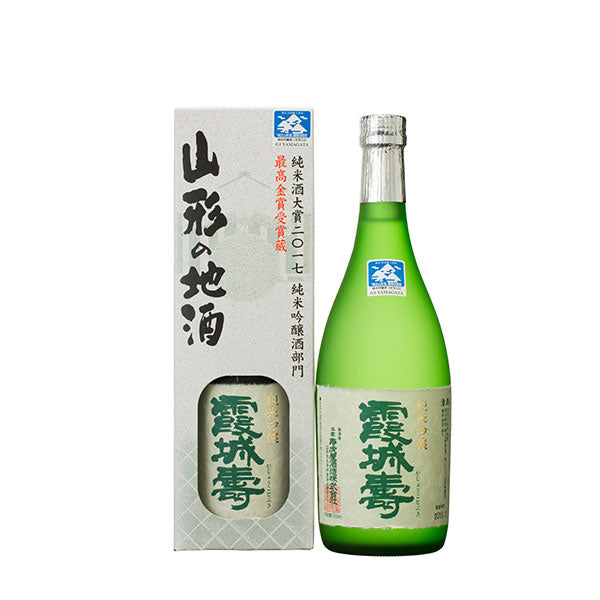-
 >
>
- Product list >
- Kajokotobuki Dewasansan Junmai-ginjo (720ml)
Kajokotobuki Dewasansan Junmai-ginjo (720ml)
詳しく見る
- *All prices shown are the product prices from the Japanpage:.
- *Product price can be shown in multiple currencies as reference values.
- *Payment should be made in Japanese yen.
- *After filling in delivery address, grand total (product price + shipping cost (packing + shipping + insurance) +tariffs & taxes) will be shown on the shipping cart page.
- *All prices shown are the product prices from the Japanpage:.
- *Product price can be shown in multiple currencies as reference values.
- *Payment should be made in Japanese yen.
- *After filling in delivery address, grand total (product price + shipping cost (packing + shipping + insurance) +tariffs & taxes) will be shown on the shipping cart page.
Awards
Junmai award2017 Junmai Ginjo Division Grand Gold
Yamagata "Dewasansan" brewer's rice grains are ground down to 50% of their original size, then carefully with Yamagata yeast and melted snow from Mt. Zao, natural water full of the power of nature, to make a Japanese sake called "Kajokotobuki Dewasansan Junmai-ginjo". The distinctive features of this ginjo sake are soft mouthfeel, elegant and fresh aroma, and a mellow flavor. At a contest for Junmai to evaluate which products regular consumers could drink and enjoy called Junmai award2017, this product won 1st prize in the Junmai Ginjo Division. In spite of this superb quality, it also has an excellent price-performance ratio since it's relatively inexpensive.
Pairing food proposed from Vendor
Cream cheese, gratin, raw oysters
About "Kajokotobuki"
The name "Kajokotobuki" is a combination of the common name for Yamagata Castle, "Kasumigajo" with "kotobuki" (congratulations). Japanese sake made from high-quality rice and the soft water of Mt. Zao's underground springs (water formed when snow on Mt. Zao melts). With pride in our 300-year history as a traditional sake brewer, this brewery also use modern technology to product the ultimate beverage for your enjoyment.
Recommended temperature
- Atsukan (50 - 55℃)
- Jokan (45 - 50℃)
- Nurukan (30 - 40℃)
- Room temperature (15 - 20℃)
- Hanabie (10℃)
- Yukibie (5℃)
Type


Tag
Appearance
-
Clarity
Transparency
Hazy
-
Colour
Colorless
Dark brown
-
Intensity
Water
Deep
Nose characteristics
-
Intensity
Low
Strong
Taste characteristics
-
Light / Body
Light
Body
-
Sweet / Dry
Sweet
Dry
-
Simple / Complexity
Simple
Complexity
-
Acidity
Low
High
-
Umami
Low
High
-
Finish
Low finish
Long finish
Aroma and flavor
Apple
Detailed information
| Volume | 720ml |
|---|---|
| Size (L W H) | 8.0 x 8.0 x 27.5 cm |
| Weight | 1.2kg |
| Ingredients | Rice, Rice koji, Water |
| Region | Yamagata |
| Alcohol content | 16%vol. |
|
Sake Meter Value
|
±0 |
|
Acid level
|
1.5 |
|
Polishing ratio
|
50% |









